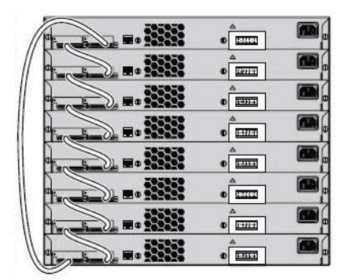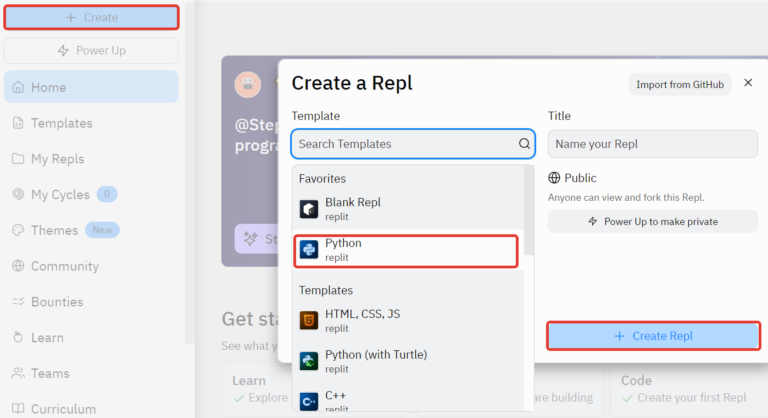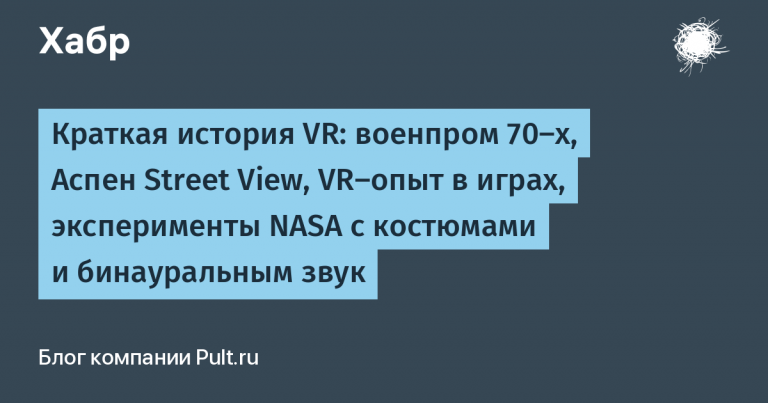Is the future of robot games?
So I've thrown out a number of my assumptions: what neural networks and AI will do in game development in ten years, and what tasks will remain the prerogative of meat bags. Welcome to the comments – I'll read your opinions and criticism with interest.
Neural networks will generate unique levels on the fly (probably not)
You probably know that the idea of random (or rather pseudo-random) level generation in games is very old, it can be traced back to the very same Rogue, created in 1980. It is a very popular theme in the whole roguelike/rouglite genre: algorithms go to a large database with objects, rooms, enemies, etc., select a set of fragments from it and generate a unique level from them.
In essence, AI level generation continues this idea, but at a higher level – the algorithm does not select objects from a ready-made pool, but generates its own based on the fed samples.
This is where I see the problem: for such a neural network to work well and create really high-quality levels, it needs to be fed a ton of data. Even for a 2D roguelike like Isaac or Gungeon, this is a large amount of data that someone needs to first create and then teach the neural network to work with. Not to mention large AAA projects, where the requirements for all visual elements are much higher.
And even with a large pool of samples, there is no guarantee that the neural network will be able to generate something original enough to keep the player's eyes from getting tired in the second, fifth or tenth hour. For example, neural network pictures seemed very impressive to everyone at first. But now, firstly, they have started to irritate many people because they are everywhere, and secondly, most Internet users have learned to easily distinguish that a picture was drawn by a neural network, and not a person.
There will probably be indie projects, especially roguelikes, that will incorporate this level-generating theme — perhaps as a side, particularly chaotic game mode. But overall, level design will remain human-dominated.
Neural networks will copy-paste with the level designer at the stage of creating the graybox (yes)
Greybox is the first serious stage of level modeling after sketches on paper or in a graphics editor. This is a primitive version of the level from a visual point of view, the main idea of which is to work out the mechanics and features of the game space, where the player can find hidden treasures, where it is necessary to stealth, from where the view of the next location will open, and so on.
When a designer starts a greybox, they usually already have some knowledge about the characters and mechanics: how far a player can jump, what is the degree of vision of enemies. Accordingly, by feeding this knowledge to a copy-a-lot neural network, the designer can pass on low-level tasks to the robot:
Make a gap here that the player can't jump over, and make sure there are no platforms nearby that could help him make the jump.
From point A to point B, you need to place hooks for the character with the cat. Make sure that they are no more than 3.5 meters apart from each other, so that the player can use the cat when jumping from each hook to the next.
Make sure that all cover that the player can crouch behind to hide from enemies is high enough.
The human designer in such collaborations focuses on developing level concepts and unique ideas that the neural network cannot handle because it has not been trained on such material. So there is hope that level design from a gameplay perspective will become more complex in the future.
Neural networks will create models of characters and objects for the game (partially yes)
In the summer, at an IT conference, I tried a neural network that generates 3D models with the ability to immediately upload the result to Blender. So far, the models are quite primitive, with blurry corners and very primitive textures. But they are quite suitable as initial sketches for more complex work. In the whitebox (this is the next stage after the graybox), the visual design team will come to the finished gameplay model of the level and throw prompts to their copy-pailot: here we will have futuristic architecture, enemies standing here – robots with absolutely the same design and different serial numbers, and from here you can see the beauty in the distance, here is the concept art, on the basis of which it must be modeled.
And please, the network will do all this at a primitive level, and people will then edit and clean up the results of its work. It seems that in this chain, neural networks are in too privileged a position: they make the first creative approach, and people work on the basis of their ideas. But here we come to the next prediction…
Neural networks will replace game designers/scriptwriters/artists/composers/developers (no)
Here, everything comes down to the key problem of weak/narrow AI — these are currently exclusively generative technologies that cannot go beyond the pool of their samples. As I wrote, we all now know well what the fruits of a neural network's labor look like; the eye has learned to recognize them right away. Many Internet users call neural network creativity AI-slop, because these pictures/texts/music are not yet unique enough to evoke strong emotions; they are mostly dull, typical, and ordinary.
I don't really believe that in any of the above-mentioned areas neural networks will improve so much in 10 years that they will replace people. Especially in game design: how can you teach a large model to make interesting new mechanics based on existing ones if the mechanics are never expressed in some convenient generalized format that can be fed to a computer? You can teach a neural network on Doom, but then the output will be a slightly randomized Doom. And if you feed it a dozen different shooters from Doom to the latest Call of Duty, it will give out something average – that same gruel, and not a fresh iteration of mechanics.
And even with disciplines that have clear sources (script texts, art and models, music), it is difficult to imagine that AI will suddenly establish dominance over people. For example, partly random generation directly contradicts the permanence and logic that are needed in the script: if Big Boss Vasya died, he cannot simply resurrect from nowhere in the next location.
Solving this problem, that is, teaching AI to limit itself, remember past decisions and always choose new ones in accordance with them, is creating a strong artificial intelligence. Again, I can’t believe that this will happen by 2035.
There are other problems: neuromusic sometimes sounds cool, but is still poorly constructed from the point of view of musical literacy; to train an AI artist, you need a lot of art, for the use of which you need to obtain rights. If you create a game with the help of AIs instead of people, without solving their problems, it will turn out very crooked. If you solve these problems and then create a game, then we will have to wait much more than a decade for the next AI title.
Neural networks will test balance (yes)
Do you get mad when you open the changelog of your favorite online time-killer and see that the developers have reduced the damage to your favorite character by another 2%? Get used to the fact that soon you will have to get mad at soulless machines. AI will run automatic tests of game balance instead of people. It is simpler, faster, more reliable.
Game designers will throw some initial data into the model: we want to know what will happen if instead of 19-21 points of damage when throwing Winnie the Pooh's Pot of Toxic Honey, it deals 21-23 points of damage. Run 100 matches against each of the other playable characters – how will the victory statistics change?
The balancers will look at these statistics and make decisions based on them. If the Pot turns out to be too toxic, then no buffs. And if the win rate does not skyrocket, then we can add it in the next update.
I see one catch here, of course. Robot balancers will make the balance ideal… for robots. Either developers will have to train neural networks that will play like average gamers, and not just super pros, or gamers will be eternally burned by the fact that games are becoming too complex and skill-based, and any potential exploits simply do not materialize in the game – the AI catches them at the testing stage.
Neural networks will look for bugs in games (unlikely, but I hope so, and I am also afraid of this possibility)
A robot playtester is cool. No more sleepless 12-hour shifts trying to figure out if you can fall out of a level if you consistently jump into a wall. Or jump into it after crouching. Or with a sword equipped. The work of a playtester is very interesting, but, admittedly, unenviable: people work themselves to the bone, and the developer companies often don’t even tag them in the credits.
Of course, it would be nice if their efforts were appreciated. But if a neural network could do this murky work instead of them, that would also be nice. Just imagine how in a huge office, neat rows of computers play Elden Ring 3 on their own without user input, and neural testers throw poisonous knives at the foggy door to the next boss in an attempt to find out whether it is possible to kill him before getting to the arena. It is unlikely that this will happen by 2035. Or even by 2045. But there is no harm in dreaming.
True, as with balance, there is a downside here, because bugs in games are great. They are important for speedruns, they can make the game easier, they are just cool and funny. So losing them because of overly smart neurotesters is a bit sad.
Conclusion
Here's a set of predictions! If any of them seem unrealistic, feel free to write in the comments why. If you found it interesting to read, like/plus/bookmark and so on. Share in the comments your ideas on how AI can help or harm gamedev in the next ten years. And I'll go on learning Godot: a brilliant indie game won't create itself.




